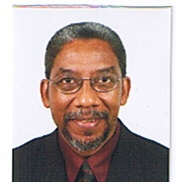|
Constitution Reform:
NECESSITY TO CHANGE THE POLITICAL SYSTEM TO ALLOW THE PEOPLE TO GOVERN THEMSELVES In the context of the deepening political crisis, a number of groups and individuals have been calling for reform of the Constitution. For some, such reform is seen as a solution that will prevent the existing stalemate from occurring in the future. Others see reform in terms of revamping the political superstructure while having nothing to say about affecting the underlying class relations. One thing is certain; reform of the Constitution cannot be an end in itself. NECESSITY TO CHANGE THE EXISTING POLITICAL SYSTEM The political system in Trinidad and Tobago as described in the constitution is based on and reflects the existing class division in society. This system of ‘representative democracy’ presents political parties created and funded by the most powerful sections of the oligarchy of finance capitalists and monopolies (the 1%) as the only “legitimate” political parties. These parties of the rich, by the rich and for the rich are connected in the prevailing propaganda with ruling and governance. On the basis of the money and connections with the most powerful of the moneyed and propertied classes any of these parties in power establishes a Cabinet, which becomes the unchallenged executive power. There is no place in this ‘representative democracy’ for the notion of the people governing themselves, being empowered to set the agenda and exercise control over their lives and the future of society. Those who represent the oligarchy, which has itself snatched the wealth and power of the society to their monopolies and finance houses, also have taken sovereignty away from the people. Any fundamental change in the Constitution must, of necessity, address changing those existing relations at the base of society that are reflected in the superstructure of the political institutions. New relationship of ownership and control are needed. DEMOCRATIC RENEWAL The people cannot exercise their sovereignty and govern themselves so long as the elected subordinate the electors to themselves rather than the electors exercising control over them. The dictatorship of the Cabinet must be ended. A new and modern constitution must enshrine that all elected representatives and institutions are subordinate to the electorate. The electors must no longer be reduced to voting cattle to be rustled into a booth every five or whenever to put parties in power that do not represent their interests. The constitution must enshrine the following rights:
These measures will all allow the majority of the society to exercise sovereignty, to participate directly in governing themselves and end the domination of political parties of the rich in the political system. OTHER FUNDAMENTAL QUESTIONS No reform of the constitution can be carried out without also addressing some other fundamental questions facing the society. The forced union of Tobago and Trinidad under colonial rule in 1889 and continued under the conditions of Independence must be brought to an end. The right to self-determination, including the right to secession must be established for the people of both islands as the basis of a new free and equal union between the people. The hereditary and other rights of the First Peoples – the Caribs and their descendants must be recognised and their place in society ensured. The Rights of all Citizens on the basis of their being human and being members of society as individuals and collectives within the society must also be guaranteed. The present anti-social offensive is accompanied by propaganda that people must become ‘independent’ of the state (meaning of the society) and look after themselves. This denial of social being is presented as ‘empowerment’ so that the most powerful in society can continue to take for themselves the vast majority of the wealth created by others. The society, to which all are born, and the governments which represent the society must have a responsibility to provide people with the highest possible standard of living and organise to meet the ever-increasing needs of the people for health care, education, culture and other necessities of life. BUILD THE MOVEMENT FOR EMPOWERMENT OF THE PEOPLE In the struggle for constitutional reform, there are forces, which want to limit the people to fighting for short-term changes, which seek to ‘get us out of the present mess’ and protect the existing conditions. While some of the demands being advanced may further expose the existing situation and assist in drawing conclusions about the necessity for change, there is need to keep an eye on the need for fundamental change. In order to bring about such changes to both society and the constitution, the workers, small farmers, women, youth, people in their communities and various collectives must organise themselves. In order to prepare themselves to govern, the people must organise and actually begin to set their own agenda, including the agenda for the renewal of the society and its political process. In the factories, offices, farming communities, schools and universities, in the communities, villages and everywhere that people share common interests as a collective, people must begin to organise themselves as Committees for Empowerment of the People. Such Committees must initiate discussion and action in respect of demands for the fundamental reform of the constitution and the economic base on which it rests and which it reflects. Such is the task of the moment. FIGHT FOR DEMOCRATIC RENEWAL OF SOCIETY! BUILD THE COMMITTEES FOR EMPOWERMENT OF THE PEOPLE! Anti-gang Bill 2017:
Another Episode of Political Grandstanding that’s Not in the Interest of the People The Parliament went into a not-so-usually-long session last night to debate the anti-gang Bill 2017. At the end of it all, the Bill was defeated with a vote of 21 for, 12 against, 1 abstention. Not unexpected, after the marathon session and vote in the dead of night, the politicians worked the media all day today, each side blaming the other for the outcome. The PM and his AG/PRO claimed surprise and shock at the UNC’s NO vote. The UNC, for its part took to the media waves to explain, justify why they could not vote for this piece of “bad legislation” that was “not in the interest of the people. Unable to follow that episode of endless talk for the sake of my health, I have had to follow the media offerings from our Parliamentary representatives today. WHO TO BLAME Not to “disappoint”, they got into the usual blame game with the now-usual dramatic flair by the 2 most senior members of the Cabinet. The AG who only mere days ago was trumpeting that the Opposition “had no excuse for rejecting” the Bill days before the debate even began in Parliament. The Bill “largely repeats clauses in the Anti-Gang Act 2011 passed by the UNC, then in Government. In his now-usual style, he quoted figures – 92 gangs with 1,500 members in 2014 had now ground to 211 gangs with 2,458 members today. Such precision, he suggests being the result of improved intelligence since the return of his party to government. Again, he demanded that the Opposition must support the Bill. But, he was a bit economical with the truth when he suggested that the 2017 Bill was almost identical to the 2011 Act. There were changes – principally No sunset clause, the inclusion of offences under the Sedition Act in Schedule One offences which could be gang-related crimes. He also claimed that there were 998 gang-related murders, but, gave no statistics of detection or conviction rates (which are entirely possible under criminal law in the absence of anti-gang legislation). DON’T BLAME US; WE DID IT IN THE PEOPLE’S INTEREST Not to be outdone, the latest UNC spokesmen took to the media circuit to say is not we, is dem. They claimed that they could not vote for the Bill at 2:00 a.m. because they want ‘good law’, law ‘in the best interest of the country’. So what was bad law in the Bill that wasn’t in their 2011 Act? The Opposition Leader suggested they couldn’t support the Bill if there was no sunset clause an with the inclusion of sedition offences in Schedule One. Well, in the course of the marathon debate, a sunset clause was included; the only difference was the PNM wanted the same 5 years as in the 2011 Act and the UNC wanted 2 years (to coincide with the next election cycle perhaps). According to new UNC Deputy Political Leader and Whip we could not support the Bill because of the giving of police powers to other agencies to enter premises without a warrant. . Well, he, too, was being economical with the truth. The relevant clauses in the 2011 Act and the 2017 Bill are indeed identical The same powers they now claim to oppose, they gave in 2011. Another UNC voice claimed the inclusion of sedition meant they could lock up people just for being opponents of the government. Well, big news, governments have been jailing people under the Sedition Act since the early 1900’s and can do that any day, WITHOUT any anti-gang legislation. In any case, the government agreed to remove that sedition offence clause during the debate. So, exactly what about this Bill, different from the 2011 Act that is NOT in the best interest of the country? PEOPLE’S INTEREST NO PART OF POLITICAL GAMES What we are left with, according to the UNC Whip, we couldn’t accept a sunset clause of 4 years and police search and arrest without warrant. Are they serious? A sunset clause of 1 year less than was in the 2011 Act and search and arrest provisions exactly as existed in the 2011 Act were their reason for voting NO!! And we are supposed to believe that their position was in the best interest of the people and country!! Another argument offered in the debate was that the DPP’s views were critical. Well, 2 points on that – in 2011 were the DPP’s views or lack of them a hindrance to passing the Act and the purpose of the sunset clause was to evaluate the effectiveness of the Act, was that done during or since the effective period. How ever this is spun, diced or sliced, the failure to pass this Bill will now give the PNM the excuse of pointing fingers and continuing the blame game for the vicious slaughter of citizens in a spiraling orgy of brutal murder. What voting NO or ABSTAIN has done is let the government off the hook of responsibility for dealing with the scourge of gang violence and crime. It also allows, their chorus to keep singing that the arrests of the same gang members that the AG claims to have name, address and contact info on was ‘racist’. Once again, the entire Parliament has proven that their political games to advance their narrow electoral and political agendas, NOT, the Right of the citizens to Safety and Security or any other Right is what passes as ‘representative’ democracy. |
AuthorI am a appalled at the loss of the simple skills of discussing ideas and sharing Opinions to DEEPEN ANALYSIS and UNDERSTAND DEVELOPMENTS to ARRIVE AT SOLUTIONS. Archives
April 2024
Categories |

About Clyde Weatherhead
Clyde has been involved in public life as a political activist, a trade unionist, Lawyer, Teacher and Author |
Connect With Clyde
Write to Clyde on Facebook Visit Clyde's Author Page on Amazon Go To Discussion on Facebook For Employment Relations Issues |

 RSS Feed
RSS Feed